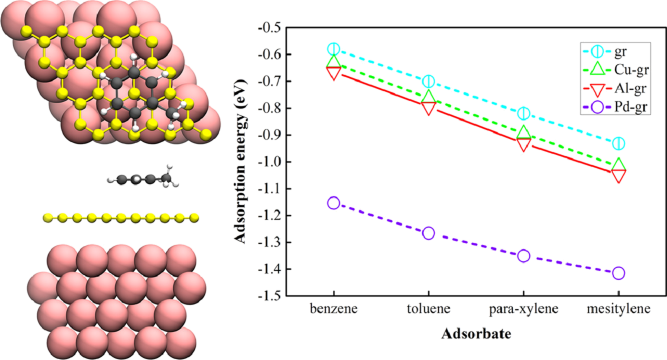2025
Probing the heterogeneous nature of LiF in solid–electrolyte interphases
Nature (online)
The electrolyte–electrode interface serves as the foundation for a myriad of chemical and physical processes. In battery chemistry, the formation of a well-known solid–electrolyte interphase (SEI) plays a pivotal role in ensuring the reversible operations of rechargeable lithium-ion batteries (LIBs).
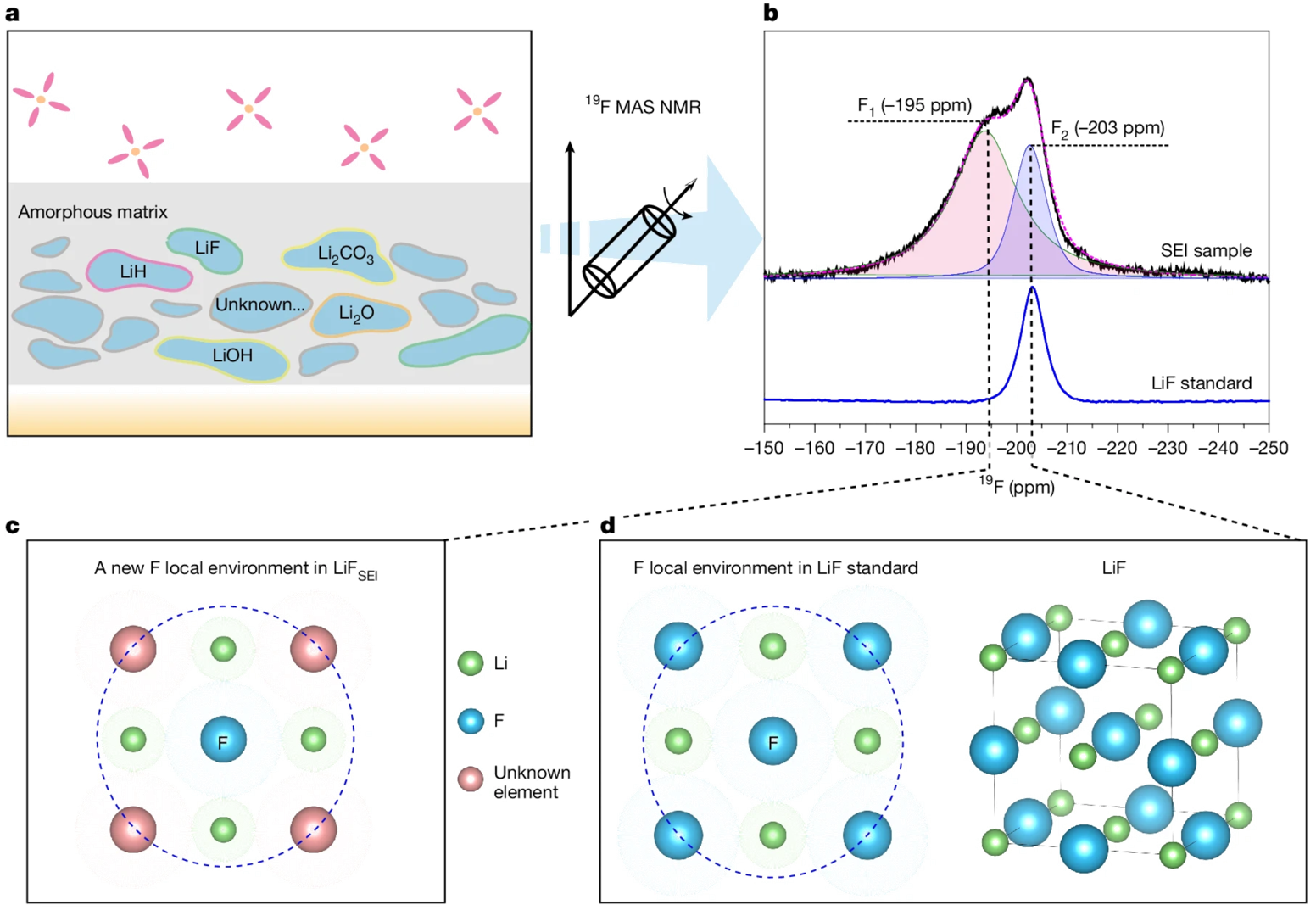
GPUMD 4.0: A high-performance molecular dynamics package for versatile materials simulations with machine-learned potentials
MGE Adv. 2025, e70028
This paper provides a comprehensive overview of the latest stable release of the graphics processing units molecular dynamics (GPUMD) package, GPUMD 4.0. We begin with a brief review of its development history, starting from the initial version. We then discuss the theoretical foundations for the development of the GPUMD package, including the formulations of the interatomic force, virial and heat current for many-body potentials, the development of the highly efficient and flexible neuroevolution potential (NEP) method, the supported integrators and related operations, the various physical properties that can be calculated on the fly, and the GPUMD ecosystem. After presenting these functionalities, we review a range of applications enabled by GPUMD, particularly in combination with the NEP approach. Finally, we outline possible future development directions for GPUMD.
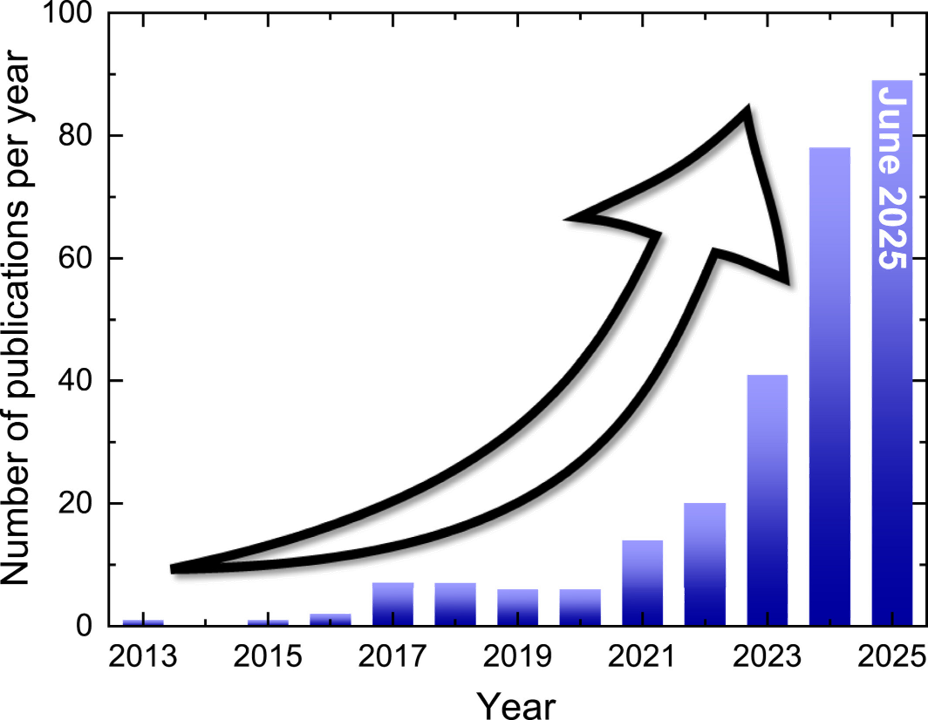
Rational Design of High-Entropy Garnet Electrolytes via Computational Screening for Stable Lithium Interfaces in All-Solid-State Batteries
Adv. Mater. 2025, e09838
All-solid-state lithium metal batteries offer enhanced safety and energy density by replacing flammable liquid electrolytes with solid-state electrolytes (SSEs). High-entropy (HE) SSEs, leveraging multi-principal-element compositions, present a vast design space to achieve exceptional ionic conductivity and electrochemical stability. However, the chemical complexity of HE SSEs introduces challenges in interfacial instability with lithium metal anodes due to the unavoidable inclusion of reactive elements.
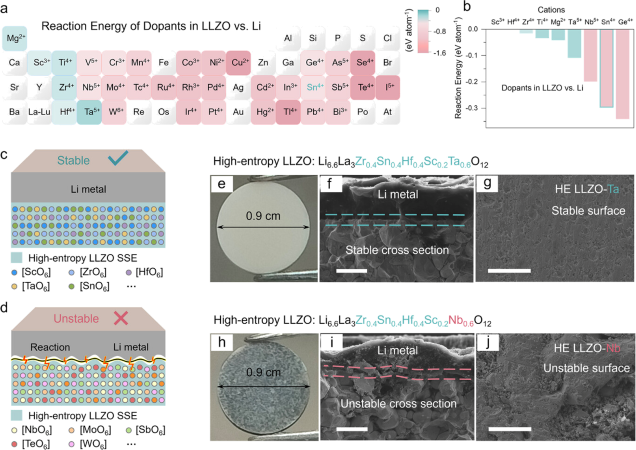
Unveiling the oxidation mechanisms of octa–penta graphene: a multidimensional exploration from first-principles to machine learning
Phys. Chem. Chem. Phys. 2025, 27, 11056-11065
Octa–penta graphene (OPG), a novel carbon allotrope characterized by its distinctive arrangement of pentagonal and octagonal rings, has garnered considerable attention due to its exceptional structure and functional properties. This study systematically investigates the oxidation mechanisms of OPG and elucidates the oxygen migration patterns on the OPG monolayer through first-principles calculations and machine-learning-based molecular dynamics (MLMD) simulations.
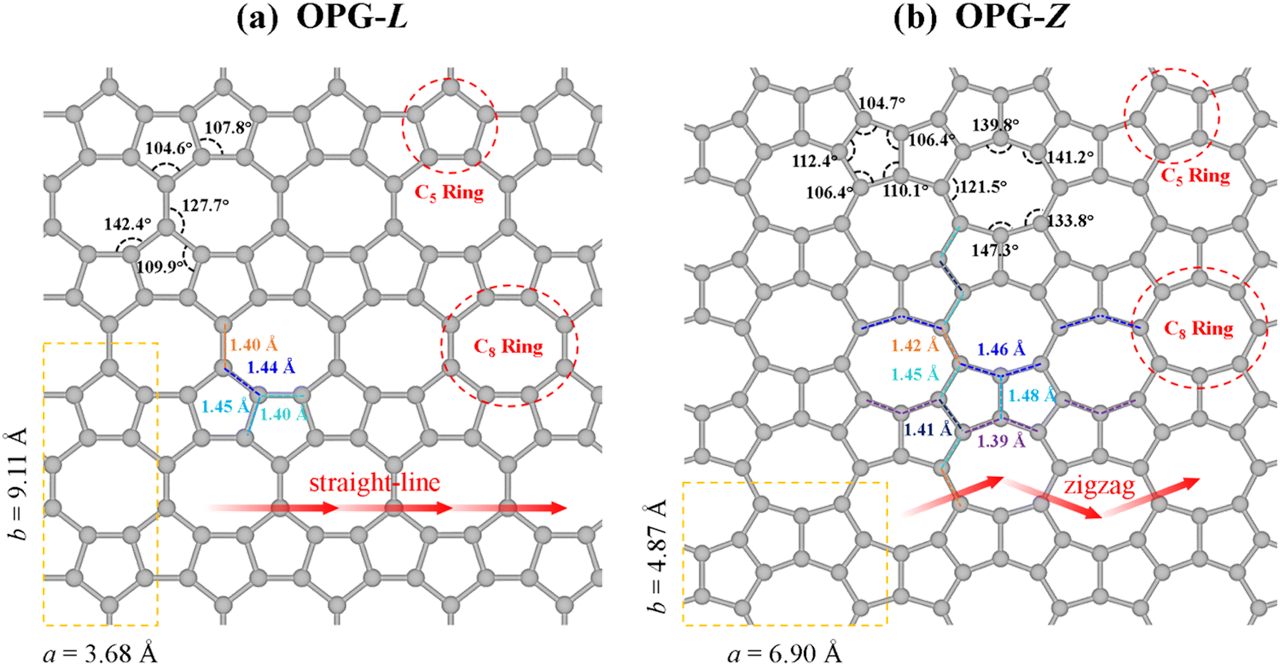
Improving robustness and training efficiency of machine-learned potentials by incorporating short-range empirical potentials
arXiv:2504.15925
Machine learning force fields (MLFFs) are powerful tools for materials modeling, but their performance is often limited by training dataset quality, particularly the lack of rare event configurations. This limitation undermines their accuracy and robustness in long-time and large-scale molecular dynamics simulations. In this work, we present a hybrid MLFF framework that integrates an empirical short-range repulsive potential and demonstrates improved robustness and training efficiency. Using solid electrolyte Li7La3Zr2O12 (LLZO) as a model system,
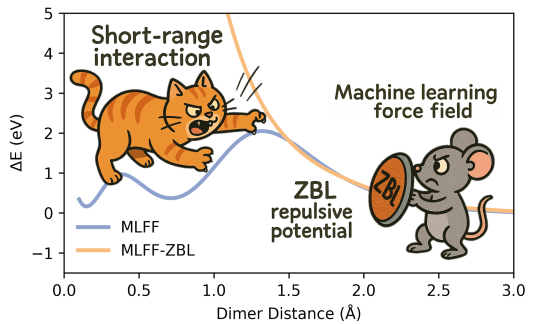
2024
Impact of lithium nonstoichiometry on ionic diffusion in tetragonal garnet-type Li7La3Zr2O12
Chem. Mater. 2024, 36, 23, 11551–11557
Understanding ion transport mechanisms on the atomistic scale in solid-state electrolytes is crucial for the development of all-solid-state batteries. Li7La3Zr2O12 (LLZO) is a promising oxide solid electrolyte material, whose phase transition behavior and ion transport mechanisms have attracted significant research attention. Previous studies have primarily focused on ion transport in the cubic phase (intrinsic high-temperature phase or doped variants). In contrast, the tetragonal phase of LLZO, despite its close relationship with the cubic phase, has received less attention due to its relatively low ionic conductivity and high computational cost.

Elucidating Anisotropic Ionic Diffusion Mechanism in Li3YCl6 with Molecular Dynamics Simulations
ACS Appl. Energy Mater. 2024, 7, 16, 7019–7024
Halide-based solid electrolytes have emerged as promising materials for the development of solid-state batteries, due to their high ionic conductivity and excellent chemical properties. Li3YCl6 is a prototype halide-based superionic material that features anisotropic ionic diffusion. Elucidating the ionic transport and optimizing the conductivity in such anisotropic materials are crucial for enhancing the performance of solid-state batteries. In this work, ...
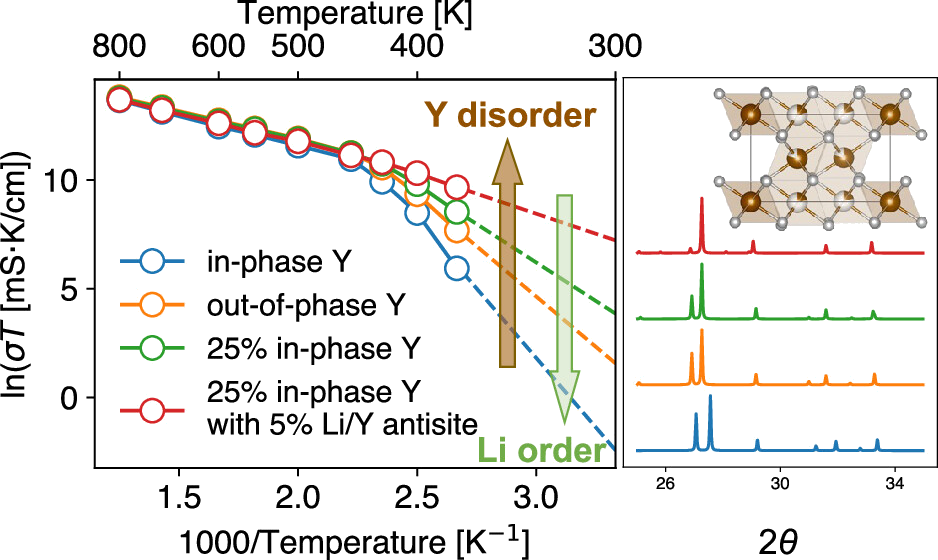
Hydroxyl-assisted globally spontaneous dynamic oxygen migration on biphenylene
Physica E 2024, 162, 115984
Dynamic covalent interfaces (DCIs) can autonomously adjust their internal structures and dynamically respond to changes in the external environment, thus holding broad application prospects in drug delivery, molecular detection, and interface catalysis. However, the dynamic properties of such DCIs greatly rely on the localized exchanges or formations of chemical bonds, seriously constraining the adaptive response efficiency.
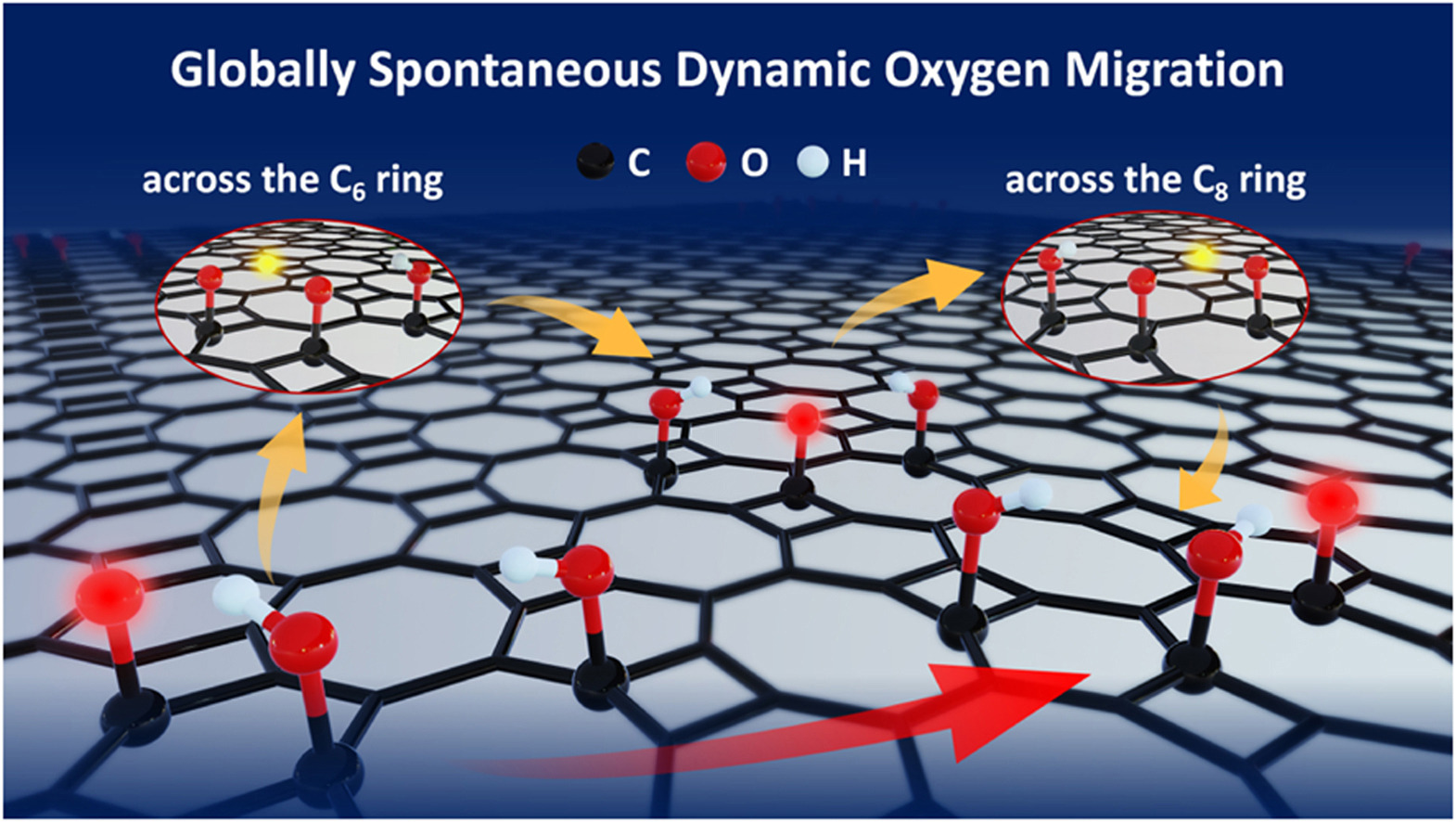
2023
Discovery of high entropy garnet solid-state electrolytes via ultrafast synthesis
Energy Storage Mater. 2023, 63, 103053
Multi-elemental functional oxides are crucial for addressing global energy challenges. High entropy oxides (HEO) represent an emerging class of such materials with exceptional performance, attracting significant attention in energy research. However, the concept of high entropy exponentially expands the exploration space of related materials, making the design and discovery of high-performance HEO a challenging task.
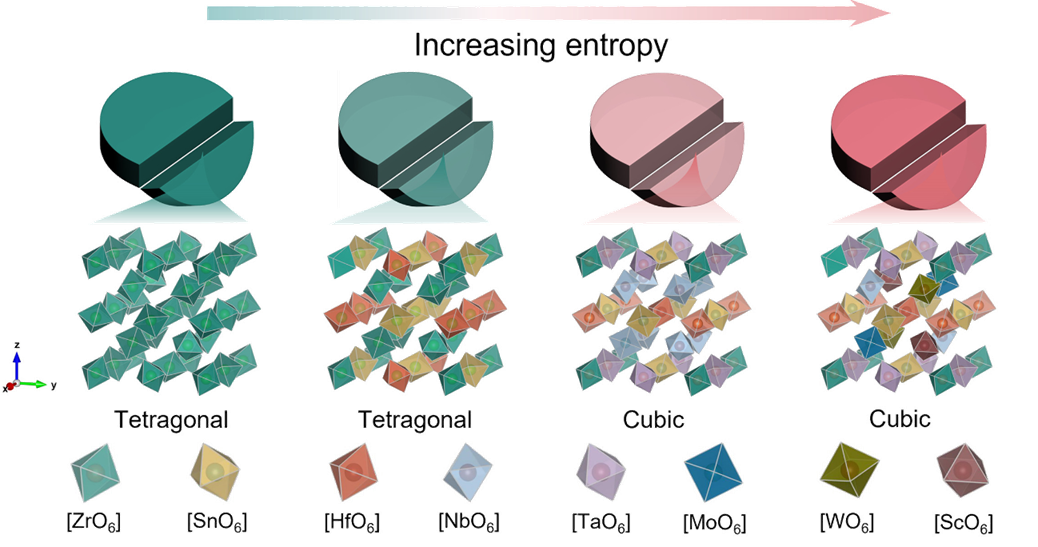
Preparation of polyaniline@graphene nanocomposite with oxidative polymerization of pre-assembled of aniline for supercapacitor electrodes
J Polym Res 2023, 30, 417
In this study, we report a facile strategy to prepare polyaniline and graphene nanopieces (PANI@GNP) nanocomposite by the oxidative polymerization of the aniline pre-assembled on the GNP surface. The morphology, chemical structure and interfacial interaction of the synthesized samples were characterized by scanning electron microscopy (SEM), transmission electron microscopy (TEM),
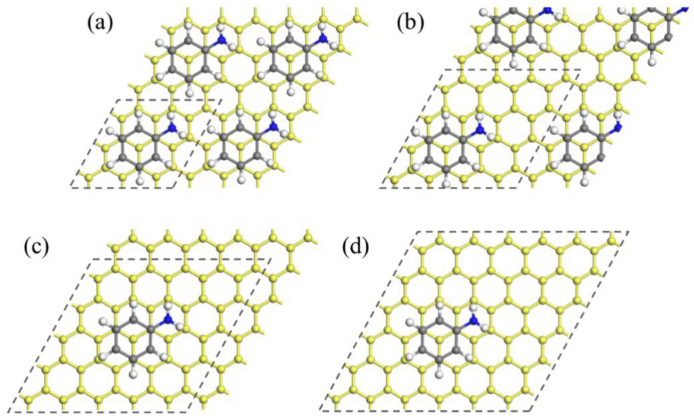
Unexpectedly Spontaneous Water Dissociation on Graphene Oxide Supported by Copper Substrate
J. Colloid Interface Sci. 2023, 642, 112-119
Water dissociation is of fundamental importance in scientific fields and has drawn considerable interest in diverse technological applications. However, the high activation barrier of breaking the O-H bond within the water molecule has been identified as the bottleneck, even for the water adsorbed on the graphene oxide (GO). Herein, using the density functional theory calculations,
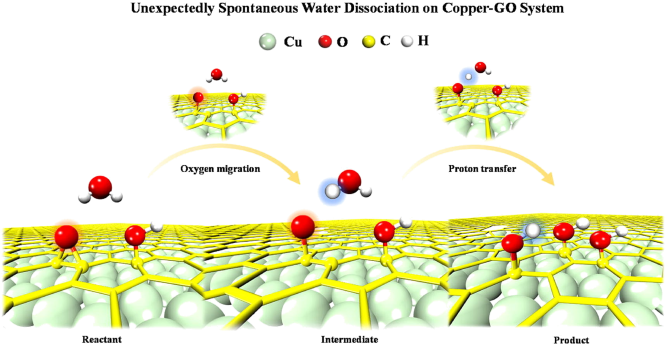
Oxygen dissociation on the C3N monolayer: A first-principles study
Appl. Surf. Sci. 2023, 613, 155912
The oxygen dissociation and the oxidized structure on the pristine C3N monolayer in exposure to air are the inevitably critical issues for the C3N engineering and surface functionalization yet have not been revealed in detail. Using the first-principles calculations, we have systematically investigated the possible O2 adsorption sites, various O2 dissociation pathways and the oxidized structures.
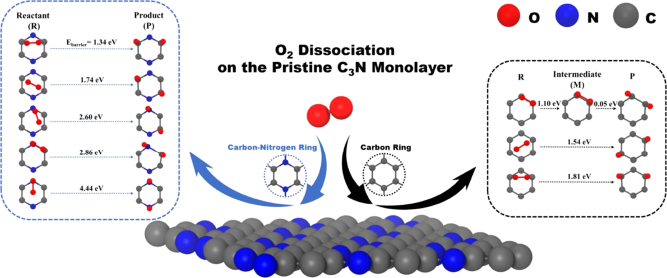
Ultrafast response of self-powered humidity sensor of flexible graphene oxide film
Mater. Des. 2023, 226, 111683
Next-generation humidity sensor, as one of the smart devices in artificial skin or flexible electronics, will need to be self-powered, flexible, fast and accurately detecting in the microenvironment. Although various flexible humidity sensors have already been demonstrated, most of them rely on large external power sources to operate, and still suffer from slow response, poor selectivity in environmental stimuli, and expensive and complicated procedures.
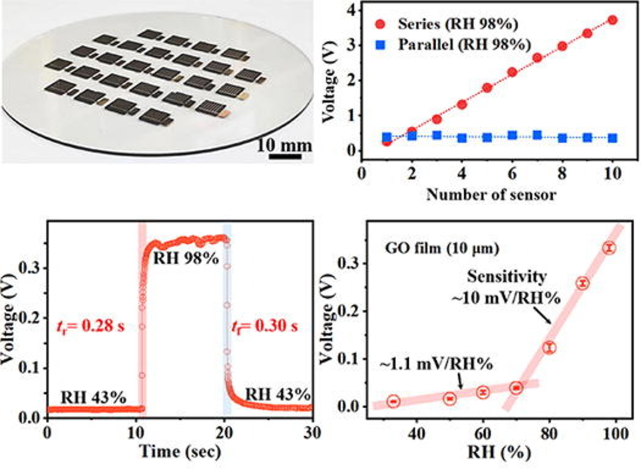
Locally spontaneous dynamic oxygen migration on biphenylene: a DFT study
Phys. Chem. Chem. Phys. 2023, 25, 14089-14095
The dynamic oxygen migration at the interface of carbon allotropes dominated by the periodic hexagonal rings, including graphene and carbon nanotubes, has opened up a new avenue to realize dynamic covalent materials. However, for the carbon materials with hybrid carbon rings, such as biphenylene, whether the dynamic oxygen migration at its interface can still be found remains unknown.

2022
Remarkably Enhanced Dynamic Oxygen Migration on Graphene Oxide Supported by Copper Substrate
Nanoscale Horiz. 2022, 7, 1082-1086
The dynamic covalent properties of graphene oxide (GO) are of fundamental interest to a broad range of scientific areas and technological applications. It remains a challenge to access feasible dynamic reactions for reversibly breaking/reforming the covalent bonds of oxygen functional groups on GO, although these reactions can be induced by photonic or mechanical routes,
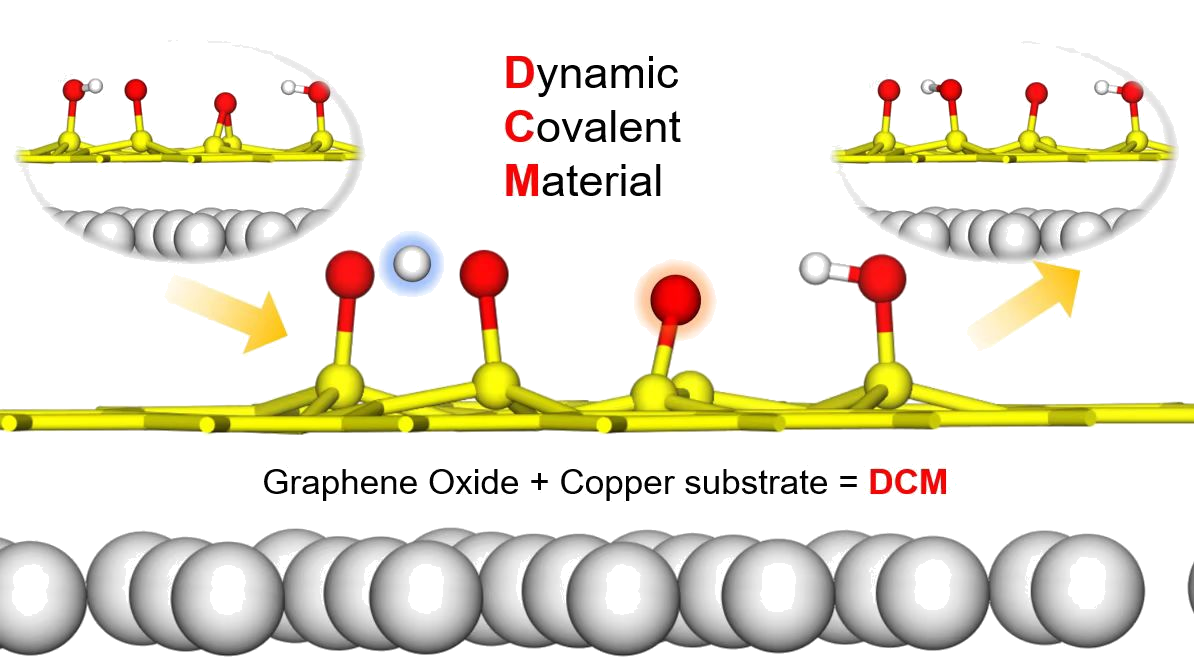
Emerging two-dimensional tellurene and tellurides for broadband photodetectors
Small 2022, 18, 2200016
As with all stylish 2D functional materials, tellurene and tellurides possessing excellent physical and chemical properties such as high environmental stability, tunable narrow bandgap, and lower thermal conductivity, have aroused the great interest of the researchers. These properties of such materials also form the basis for relatively newfangled scholarly fields involving advanced topics, especially for broadband photodetectors.

2021
First-principles study of benzene and its homologues upon graphene-metal surfaces: Comparison of London dispersion corrections
Surf. Sci. 2021, 714, 121919
We perform a comparative theoretical study of benzene and its homologues (toluene, para-xylene, and mesitylene) adsorbed on Cu/Al/Pd(111)-supported graphene using density functional theory (DFT). The long-range attraction is handled by semiempirical dispersion correction method (PBE-D3) and ab initio van der Waals density functionals
